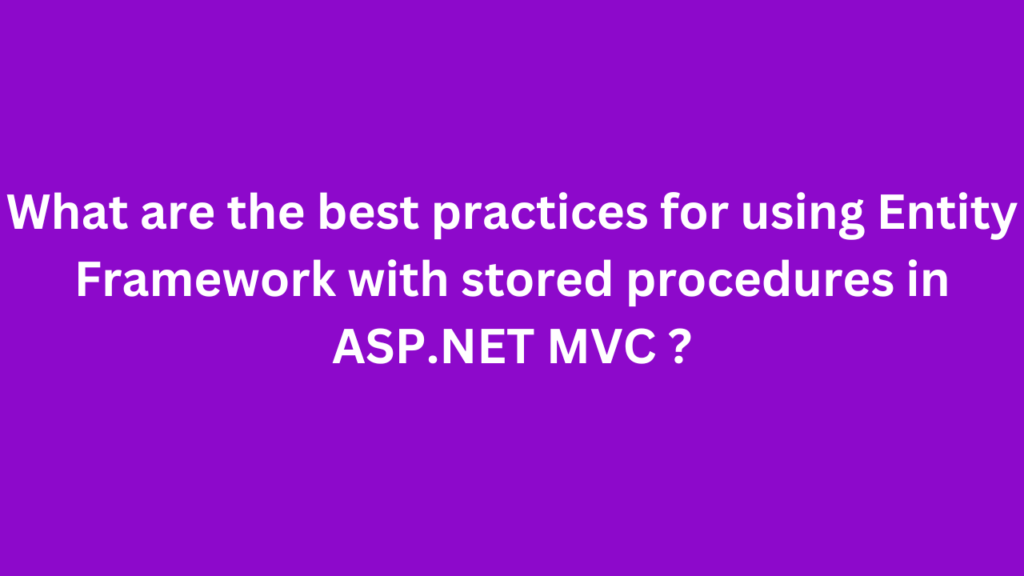Use Stored Procedures Judiciously
For complex queries, stored procedures can improve efficiency, but they can introduce complexity. When dealing with complicated business logic that is better suited for a database or when there are severe performance problems, use them sparingly. Direct EF queries might be sufficient and easy to maintain for basic CRUD activities.
Separate Data Access Logic
Keep your controllers and views apart from the data access code. The stored procedure calls should be encapsulated using a service layer or repository pattern. Your controllers remain testable and tidy as a result.
Map Stored Procedure Results to ViewModels
Map the results of data-returning stored procedures to ViewModels rather than domain entities when you call them. Because of this, you can modify the data to fit the view’s requirements without disclosing internal implementation details.
Use Parameterized Queries
To prevent SQL injection issues, always invoke stored procedures using parameterized queries. You can securely pass parameters using EF’s methods like FromSqlInterpolated and FromSqlRaw.
Handle Stored Procedure Limitations
Be aware of EF’s limitations when calling stored procedures:
- Stored procedures must return data for all entity properties
- Column names must match entity property names
- Stored procedures cannot return related data (e.g. join results)2
If you need to work around these limitations, consider using a micro-ORM like Dapper alongside EF.
Leverage EF’s Stored Procedure Configuration
EF provides ways to configure stored procedures for CRUD operations on entities. Use the MapToStoredProcedures method in OnModelCreating to specify stored procedure names for insert, update, delete.
Avoid Mixing Stored Procedures and LINQ
If possible, use either stored procedures or LINQ consistently within a single application. Mixing the two can lead to complexity and maintainability issues.By following these best practices, you can effectively leverage the strengths of stored procedures while minimizing the drawbacks when using Entity Framework in ASP.NET MVC.


